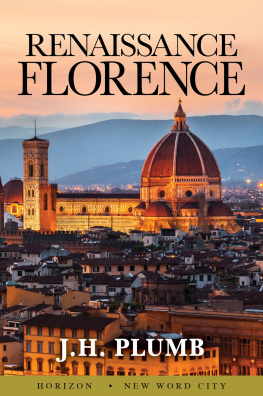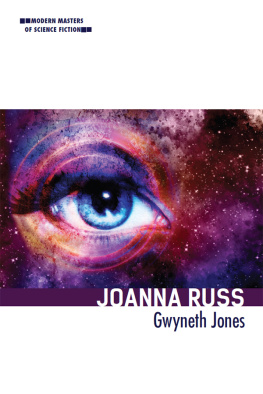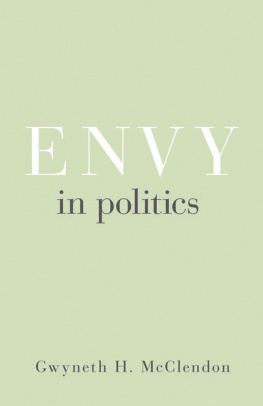Copyright 2016 by the President and Fellows of Harvard College
All rights reserved
Cover art: Portrait of a Sitting Woman, 1522 (sanguine), Andrea del Sarto / Galeria degli Uffizi, Florence, Italy / Mondadori Portfolio/Electa/Antonio Quattrone / Bridgeman Images
Cover design: Annamarie McMahon Why
978-0-674-65983-4 (alk. paper)
978-0-674-96997-1 (EPUB)
978-0-674-96996-4 (MOBI)
The Library of Congress has cataloged the printed edition as follows:
Ross, Sarah Gwyneth, 1975
Everyday Renaissances : the quest for cultural legitimacy in Venice / Sarah Gwyneth Ross.
pages cm
Includes bibliographical references and index.
1. RenaissanceItalyVenice. 2. Philosophy, Renaissance. 3. PhysiciansItalyVeniceHistory16th century. 4. Middle classItalyVeniceHistory16th century. 5. Middle classItalyVeniceHistory17th century. 6. Venice (Italy)CivilizationTo 1797. 7. Venice (Italy)Intellectual life16th century. I. Title.
CB361.R67 2016
940.2'1dc23
2015030883
This book is about the Renaissance, but not the eras literary or artistic celebrities. Our subjects are Venetian men and women living outside the circles of power and the Renaissances they experienced and represented. We will be examining a world of aspiration inhabited by people who valued learning and literature but whose families lacked formal political authority and whose intellectual lives were not coterminous with their gainful employment. Patronage networks were not ready-made for them, and cachet did not form part of their patrimony. For the subjects of this book, moreover, education was often a gift, not a given. Learning provided our protagonists with the tools to interpret and improve their lives, to make the world around them; their different forms of contact with books and learning elevated, transformed, or anchored them, depending on their points of origin, where they aimed to go, and what hopes they cherished for kin, colleagues, and friends in future generations.
Scholars and broader audiences alike now tend to level charges of elitism at the Renaissance as a cultural phenomenon, and with some justice. Patrons of culture had uncommon wealth. And even if most producers of culture had relatively humble origins, they enjoyed uncommon talent. Yet Everyday Renaissances claims that ordinary people also participated energetically in culture, and that attending to them offers a sharper picture of the eras intellectual and literary ferment. I do not, however, aim to revive Jacob Burckhardts conception of egalitarianism in Renaissance Italy. Our protagonists seldom reveal a utopia of cultural accessibility; more often they tell us of their effort to possess books, education, and literary esteem. Even their successesand there were successesreveal the social tensions they confronted.
Looking at the cultural and intellectual lives of predominantly unheralded artisanal, mercantile, and professional people with little discretionary income or leisure, we confront an essential question: What did culture do for people? The scholarship of the last half century has taught us that literary, intellectual, or artistic work and its sponsorship always had practical dimensions. If it requires little argument that Leonardo da Vinci needed to eat, we have had to think carefully about the complex ways in which literary and artistic patronage supported the careers of scholars and artists while at the same time enhancing the reputations and serving the objectives of their patrons. This study answers that question in the affirmative, although focusing on books and education far more than visual art. The Renaissance mattered to everyday people, because even provisional contact with intellectual and literary endeavors built reputations, initiated or continued processes of social mobility, and promised an honorable posterity.
Resting on an evidentiary base of more than four thousand archival documents, especially wills, household inventories, and account books, this study showcases diverse fragments of cultural experience. Making sense of those fragments and their owners, however, requires a new theoretical framework. I would like to begin, then, by highlighting a representative artifact and drawing out the framework in which it can be situated before surveying this books sources, protagonists, and specific interventions.
ONE RETAILER, TWO GREEK MANUSCRIPTS, AND A THEORY OF CULTURAL LEGITIMACY
On June 18, 1556, a Venetian secondhand goods dealer named Francesco entrusted his shop boy, Zuanne, with an interesting errand. Zuanne was to procure two Greek manuscripts from His Magnificence, Andrea di Franceschi, a secretary of the ducal chancery whose duties included granting permission to borrow items from the collection of books and manuscripts that would, centuries later, still form the core of Venices famous library, the Biblioteca Nazionale di San Marco. The ledgers that Franceschi kept most often reveal the usual suspects of libraries: career scholars, orators, secretaries, writers, and lawyers. But a few physicians also appeared and even, on this occasion, a minor player in the world of commerce. His Magnificence may have been taken aback to find a retail merchant attempting to make use of the lending potential of this collection, but in any event he took the basin that Zuanne had brought as surety and made this note: 18 June 1556, Mr. Francesco (son of Paul), who runs a second-hand shop near the clock tower in the Piazza San Marco, has borrowed a Greek book on parchment called Proclus on Platonic Theology and also The Commentary of Hierocles on the Golden Verses of Pythagoras, which his servant, Zuanne of Venice, will take to him with my permission. And I have had from him as a collateral an engraved silver basin.
Why, more particularly, might a secondhand goods dealer such as messer Francesco have wanted to consult Greek manuscripts? Like many of the sources at the heart of this book, these lending records are laconic, making the task of divining motives even more problematic than usual. But any purely practical motive we might give him would lead us to unlikelihood. If he had come into possession of similar manuscripts and wanted to verify their authenticity or completeness as part of assessing their value, it would have been more efficient to enlist the services of a humanist or grammarian. Might messer Francesco himself have possessed sufficient knowledge of Greek and philosophy? A secondhand goods dealer could have been the well-educated son of a patrician or citizen family that suffered economic decline. By the middle of the sixteenth century, many families in Venice responded to financial constriction by practicing extreme estate planning, effectively disinheriting most children to transmit the estate intact to the most capable heir. Such a strategy required monachating many daughters and sons, as well as pushing other boys either into commercial apprenticeships, or else providing the minimal support for university studies that might prepare the young men for a learned profession. Francesco might have had such a story, and in that case perhaps the requisite skills to read and comprehend the manuscripts unaided. But we would still have to ask why he did not interact with this material in printed form. Proclus, for instance, was widely available, and in 1516 had even appeared in a scholarly Aldine edition. Why go to the trouble of sending an employee to fetch these manuscripts, which required making collateral of a precious object, as well as time and inconvenience? Attempting to give this man a practical aim leads us to rationales such as an aversion to print media or a second career as a humanist that would be highly improbable (though admittedly not impossible) for a man described as a retailer.












